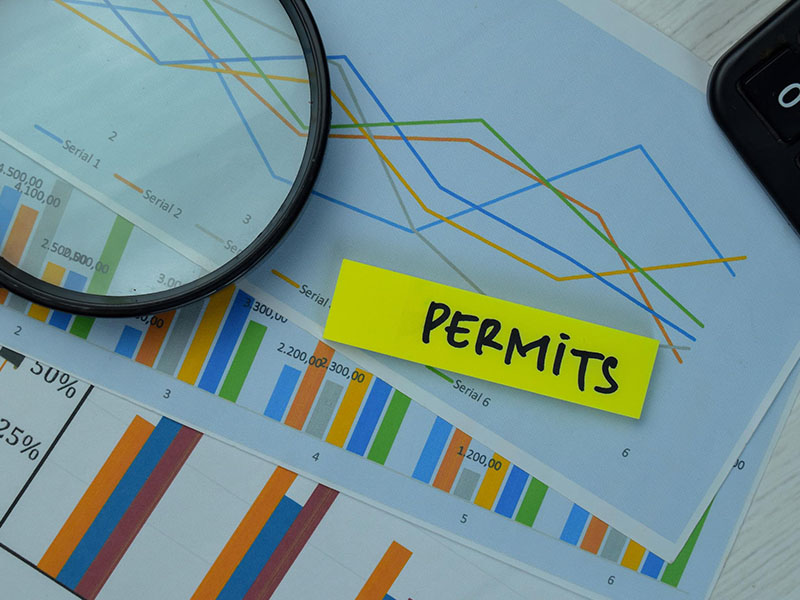Refinancing or selling a home requires a professional home appraisal. This gives future buyers and lenders an unbiased idea of a home’s worth and half the weight in any lending decision involving real estate is provided by the appraisal. Some of the items that factor into an appraiser’s assessment include:
- Location, view, topography, lot size, zoning, and landscaping features
- Quality of construction, finish work, fixed, and defining features
- Age, deterioration, renovations, upgrades, and added features
- Structural integrity, code compliance, above and below grade improvements
- Property functionality in terms of style and use
- Garages, carports, and shops
- Carbon monoxide and smoke detectors
Many of these factors—location, lot size, and view—are outside of your control, but there are some mistakes homeowners might make that actually could result in harming the value of your home. These include:
- Not being present for the appraisal.
While you don’t want to hover over the appraiser while they do their job, you do want to be available on the property that day to answer any questions, provide the necessary paperwork, or give the appraiser access to any locked or hard to reach locations on the property.
Consider communicating with the appraiser beforehand to inquire as to any paperwork that will be needed so it can be provided when they come.
The best strategy is to find a cozy spot out in the yard where you can hunker down and read a book while the appraiser goes about their business. That way, you’re out of the way but available if anything comes up. Be patient during this time. The physical appraisal of your home might take anywhere from 15 minutes to a couple of hours. After that, the appraiser will write up their assessment which might take several days.

- Not having permits available for ADUs, living space additions, and garage conversions.
One of the most important criteria on an appraisal is the square footage of the living space, this is why it’s important to have the necessary documentation on hand for any permits that may be required for this type of addition. According to Maxablespace.com, “Unfortunately, there’s no agreed upon standard for appraising an accessory dwelling unit, so it’s best to try and find an appraiser with some experience in this area.” Working with an experienced real estate agent will be extremely helpful in cases like this as they will contact the necessary authorities to find out what sort of documentation is needed and what allowances might be available.
According to Fannie Mae’s selling guide, “If the appraiser identifies an addition(s) that does not have the required permit, the appraiser must comment on the quality and appearance of the work and its impact, if any, on the market value of the subject property.” Though getting all the permits and paperwork together might seem like a hassle, “Units built with permits in a workmanlike manner will obviously command a much higher value than units built without permits.” Additionally, Jvmlending.com states, “If there is strong demand for ADUs in a particular area and there are comparable sales of homes with similar ADUs, we sometimes see them giving significant value—in the six-figure range.”
- Not filling the pool.
In addition to ensuring you have the necessary permits on hand for your pool, see that the pool is filled as a non-working pool will diminish the value of the property. Unfilled pools will also cause the appraiser to mark it as a “condition,” meaning the pool will have to be repaired and filled in order for the appraiser to sign off on it. Pools add a significant value to a home, with data from Redfin showing that in Southern California, they can increase a home’s value by anywhere from $11,591 to $95,393.

- Not having solar panel paperwork.
Owned solar panels add a significant value to a home, so make sure you have that ownership paperwork readily available. Citing research from Ruth Johnson and David Kaseman, The Appraisal Journal recently observed, “Home value increases of about $20 for every dollar saved on annual energy costs.” That means if your energy bill is $200/month, you’d multiply that number by 12, then multiply that number by 20, resulting in $48,000 in appreciation due to the addition of owned solar.
Unfortunately, if the solar panels are leased, they won’t add any value on an appraisal. So if you have that certificate of ownership, be sure the appraiser has had a chance to look at that.
- Not having information about the upgrades you’ve made.
Providing the appraiser with a list of upgrades will help them take these into consideration when determining the value. This is called a scope of work document. It’s helpful to include the approximate cost and to note if you paid a premium for a specific feature. Did you recently add tinted windows or other features? Be sure to list those as well.
- Not updating the interior, improving the curb appeal, or taking care of quick fixes.
Peeling trim, a dying lawn, and weed-filled landscaping all reduce a property’s curb appeal, so taking a few hours to plant some flowers, paint the front door, or add fresh mulch to the yard might be all that is needed. According to HomeLight’s curb appeal survey, “basic lawn care, applying fresh bark, and adding some low-end landscaping adds up to $12,000 in resale value on average.” In fact, adding fresh mulch has a 536% return on investment, potentially adding $4,500 in resale value. Homelight also found that painting the exterior offers a huge return on investment with a $3,000 paint job adding $7,571 to an appraised value.
Additionally, a dated interior or non-working appliances can also diminish a home’s value. According to AmericanFinancing.net, “Appraisers tend to value property in $500 increments—like $300,000, $300,500, $301,000, etc. Because appraisals with $500 increments are common, it’s in your best interest to make small repairs if you are selling your home or refinancing. Even the smallest of changes can contribute to the overall condition of your property.” So go ahead and replace that leaky faucet, or get that aged cabinet hardware updated. Our recent blog post also covers some home renovations that will add the most value to your property.

Thinking of listing your home?
If knowing what you need to do to get the most out of selling your home is what’s holding you back from listing, let’s talk about how we can help. It’s not as scary when you have a good agent on your side.
